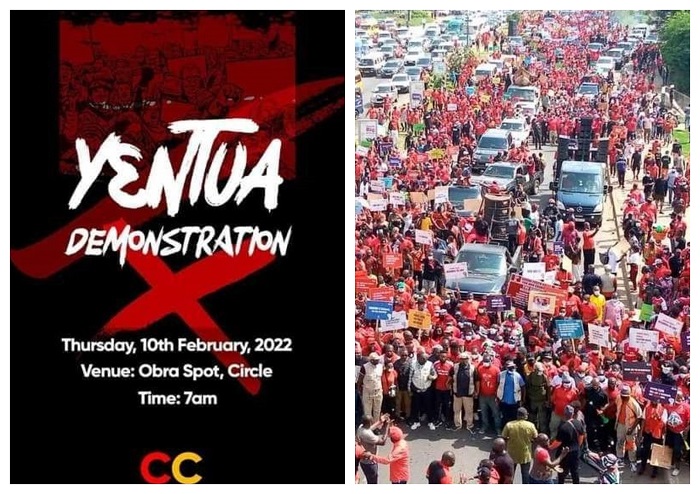The National Democratic Congress (NDC) will this morning lead a nationwide demonstration against the controversial E-Levy and what the opposition party says is deep-seated corruption under the current government.
The “Yentua Demonstration," or ('we won't pay' demonstration) is scheduled to start at 7:00 pm today, February 10, 2022.
The youth wing of the NDC is inviting party supporters and members of the public to converge at the Obra Spot, Kwame Nkrumah Circle where the protest march will begin.
According to a notice to the police, the demonstration in Accra today will be the first of many planned for other parts of the country.
E-Levy contention
Today’s demonstration will be the first major mass action against the tax that many have condemned, and experts and social commentators say is retrogressive.
The 1.7% E-Levy when passed will be charged on some mobile money and electronic transactions.
READ ALSO: #FixTheCountry snubs NDC’s invite to join Yentua demonstration
Many experts have urged the Nana Akufo-Addo administration to scrap the proposed tax since it will increase the hardship triggered by COVID-19 disruptions.
The government insists the proposed tax regime will shore up the country's depleting coffers, reduce borrowing and support the implementation of many infrastructure projects.
Corruption
In general, Nana Akufo-Addo’s five-year reign has scored low on Transparency International’s Corruption Perception Index (CPI).
Ghana’s best CPI score in the past 10 years was in 2014 when the country scored 48.
It dropped to 40 in 2017 -- a year after Akufo-Addo assumed office -- went up marginally to 41 in 2018, stayed that way in 2019 before climbing marginally to 43 in 2020 and 2021.
In the latest CPI, Ghana ranked 73 out of 180 countries assessed annually by Transparency International, a global anti-graft body.





